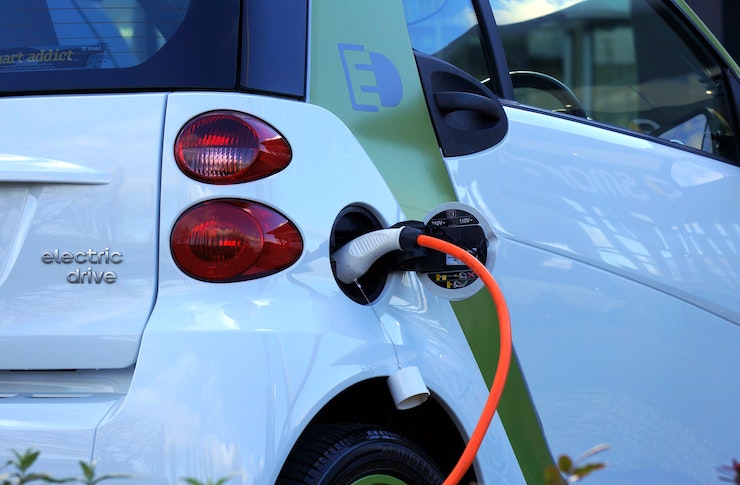Understanding Licence Requirements for Microcars in Ireland: What You Need to Know in 2025
Ireland currently requires a full Category B driving licence to operate electric microcars such as the Citroën Ami. This article outlines the 2025 licensing rules, vehicle specifications, and driver eligibility, explaining why no licence-free microcar options exist under current Irish regulations.

Licensing Requirements for Microcars in Ireland (2025)
No Licence-Free Microcars Currently Available
Despite the growing popularity of electric microcars in Europe, Ireland does not currently permit driving any small microcar such as the Citroën Ami without a full Category B driving licence. This is primarily due to the following:
- The power output threshold for licence categories:Electric quadricycles with a power output above 4 kW do not qualify for an AM (moped) licence and instead are classified closer to standard cars. The Citroën Ami outputs 6 kW, exceeding the AM licence limit.
- Provisional licence holders must be accompanied if driving these vehicles and cannot drive unaccompanied until obtaining a full Category B licence after completing Essential Driver Training (EDT).
Age and Training Eligibility
- The minimum age to drive microcars like the Citroën Ami is 17, matching the standard minimum driving age for cars in Ireland.
- Drivers must complete full ESSENTIAL DRIVER TRAINING (EDT), including both theory and practical instruction, before qualifying for unaccompanied driving.
- Learner or provisional licence holders can only drive these microcars when accompanied by a fully licensed driver.
Licence Categories Explained
- Ireland’s Category B licence covers cars and quadricycles with an engine or motor power exceeding the AM licence threshold.
- The AM licence, common in many EU countries for driving mopeds and certain low-power micro EVs, is not applicable for microcars exceeding 4 kW electric power like the Citroën Ami.
- Consequently, no special licence or exemption exists for senior drivers, young drivers, or those without a full licence to drive licence-free microcars on Irish roads.
The Citroën Ami: The Most Recognisable Microcar in Ireland
The Citroën Ami is a popular electric microcar designed primarily for urban mobility. However, it exemplifies the current licensing constraints in Ireland:
- Power: 6 kW electric motor
- Top speed: Limited to 45 km/h, making it suitable for urban areas but banned from motorways
- Dimensions: Ultra-compact with a small turning radius, ideal for town and city traffic
- Licence requirement: Full Category B licence necessary to drive unaccompanied; learner drivers must be accompanied
- Insurance and Tax:
- Requires car insurance like any other vehicle
- Motor tax is applicable but low (€120 annually) due to zero emissions classification
- Charging: Uses Type-2 charging connectors compatible with Irish public and home wall boxes (no fast charging capability)
- Warranties: Two-year unlimited mileage warranty included, plus three-year or 40,000 km battery warranty
- Left-hand drive: Imported exclusively in left-hand drive configuration for safer kerbside exit when parking
This vehicle is not licence-free and bears all responsibilities of standard vehicles while offering urban-friendly ease of driving and parking.
Why No Licence-Free Microcars Exist in Ireland?
Several factors contribute to Ireland’s lack of licence-free microcars:
- Regulations and safety standards:Irish road laws categorize vehicles based on power output and safety classifications. Quadricycles with power above 4 kW require full car licences due to safety and operational reasons on public roads.
- Differentiation between mopeds and microcars:Mopeds and low-powered vehicles (AM licence) face low maximum speeds and smaller engine sizes, while microcars like the Ami exceed these and are thus treated like cars.
- No alternative licence classes or exemptions:Ireland does not currently have intermediate licence options specifically for microcars that would allow licence-free or low-licence driving. Those wanting to drive microcars need to go through full driver licensing channels.
Microcars and Their Suitability for Seniors and Young Drivers
Though microcars in Ireland require full licences, they remain an option for:
- Seniors seeking easy-to-drive, low-speed urban vehicles
- Young drivers aged 17+ who have obtained their full Category B licence
- City commuters valuing compact, eco-friendly transport in traffic-congested zones
Advantages include:
- Low speeds suited for urban 30-50 km/h zones
- Compact size simplifies parking and maneuvering
- Quiet and clean electric operation
- Lower running costs compared to conventional cars (reduced motor tax, insurance options tailored for low emissions)
These microcars provide practical, accessible urban mobility but require compliance with standard car licensing in Ireland.
Summary
- No microcars can be driven licence-free in Ireland in 2025.
- The Citroën Ami, Ireland’s leading microcar, requires a full Category B car driving licence due to its electric power rating.
- Provisional licence holders must be accompanied and complete full Essential Driver Training before driving unaccompanied.
- Microcars hold benefits as compact urban electric vehicles suited for seniors and young drivers with appropriate licences.
- Insurance and motor tax apply, but electric vehicle benefits reduce yearly costs.
- No alternative licence classes or relaxed regulations exist for licence-free microcar driving at this time.
Seniors, young drivers, and others without a full driving licence looking for small, low-speed vehicles will need to consider alternatives such as mopeds, scooters, or wait to complete the standard driver training and licence process before legally operating microcars like the Citroën Ami.
Sources
- Citroën Ami Official Ireland Page
- Citizens Information on Vehicle Categories and Driver Licensing in Ireland
- Go-E Magazine on Electric Microcars
Disclaimer: All content, including text, graphics, images and information, contained on or available through this web site is for general information purposes only. The information and materials contained in these pages and the terms, conditions and descriptions that appear, are subject to change without notice.




